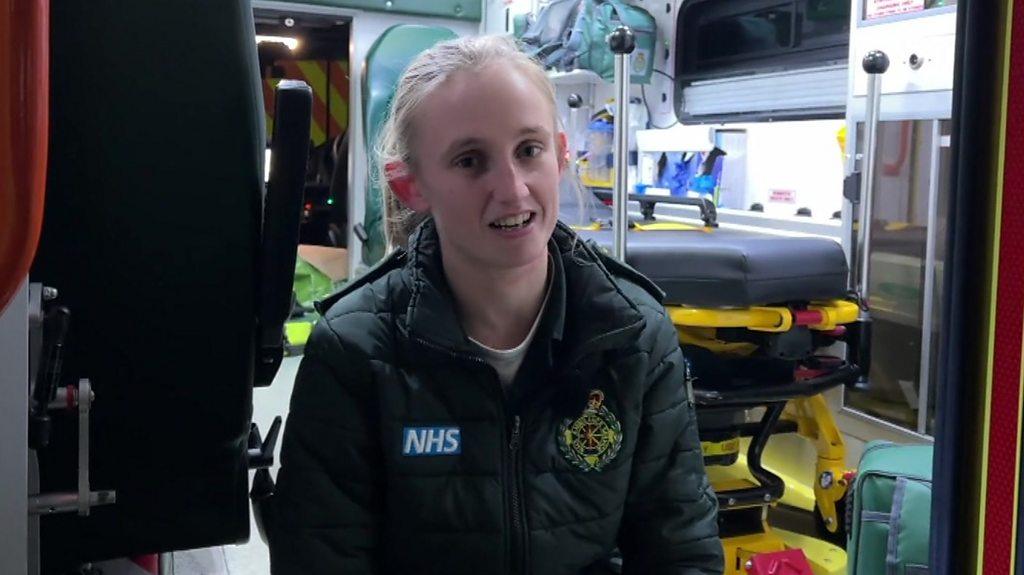'If it wasn’t for their help I would be dead'
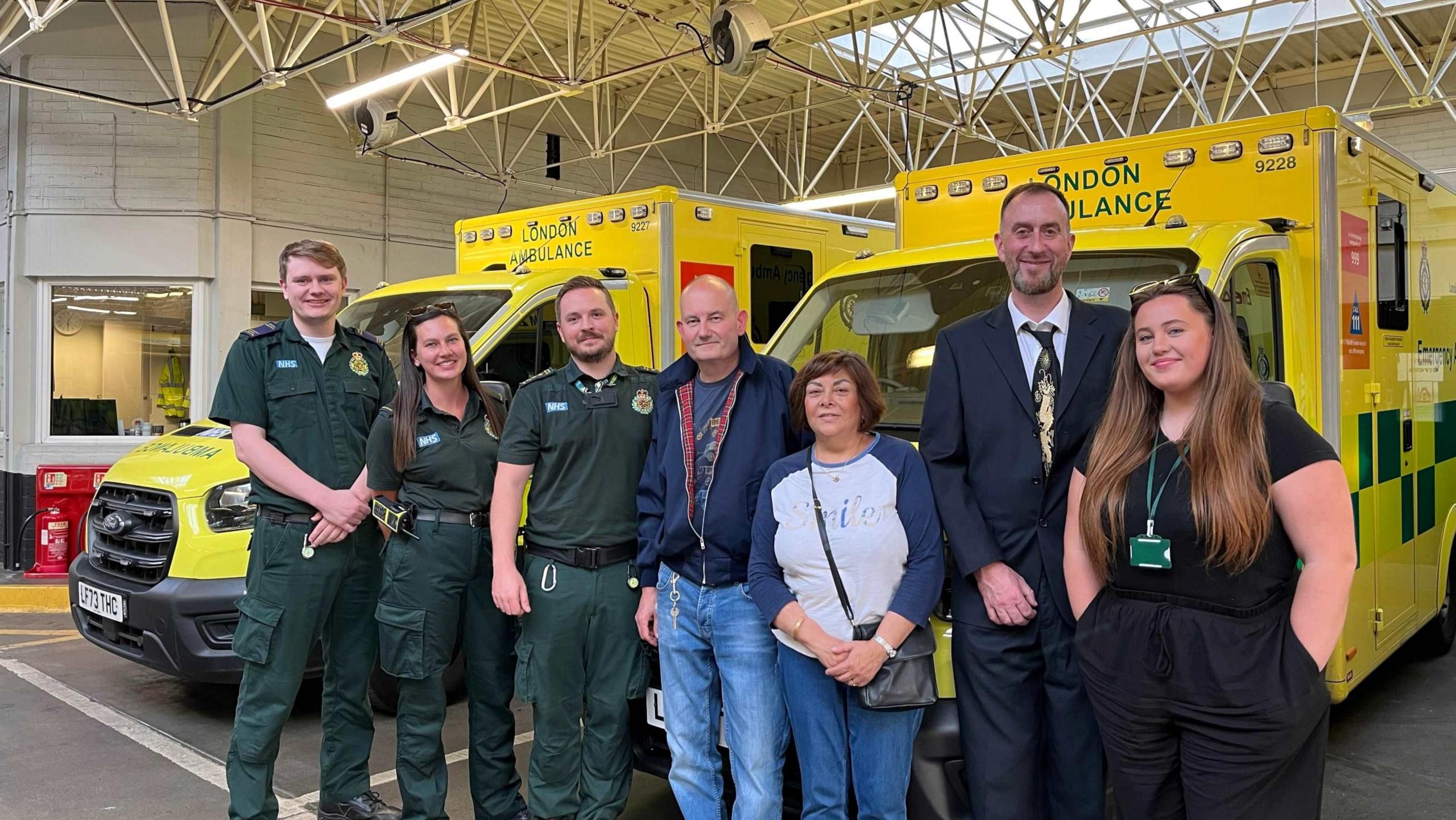
The White family met up with paramedics Wimbledon Ambulance Station after Paul's recovery
- Published
“At first I thought the police were informing me of his death," Paula White says.
"He went off to work at two o’clock and at 10 o’clock at night I had the police at my door telling me that they were blue-lighting Paul to St George’s Hospital where he was in a critical condition."
Her husband Paul's heart stopped for 20 minutes after he collapsed at a martial arts class in Wimbledon.
His class instructor Paul Hughes immediately dialled 999 and performed chest compressions on the 68-year-old black-cab driver, who is from Croydon.
Paramedics from London Ambulance arrived in minutes and used a defibrillator from their kit.
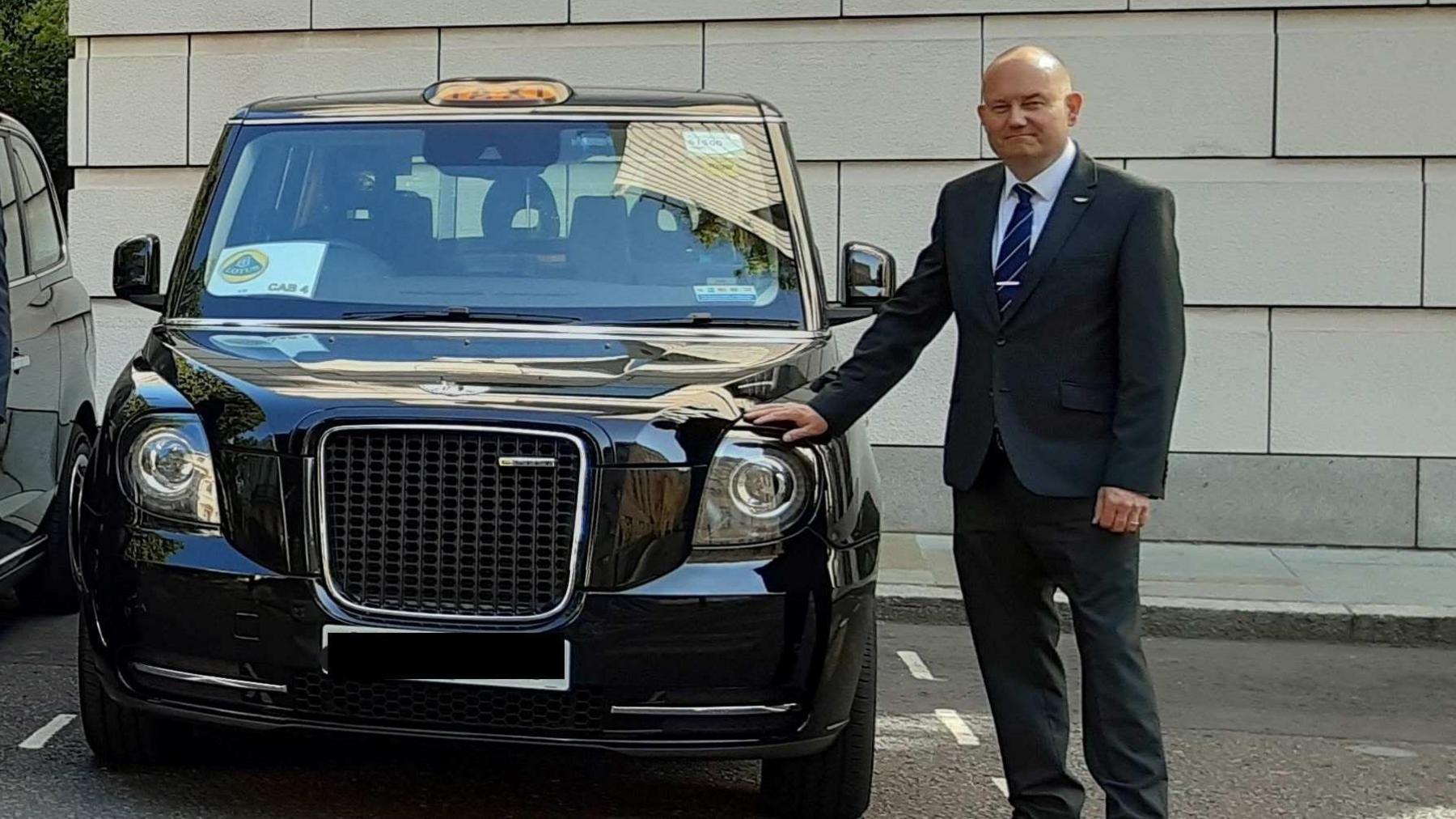
Paul White and his black cab
The black-cab driver of 25 years said: “If it wasn’t for their help and the use of a defibrillator, it would have been a very different outcome. I’m really fortunate that I’m still alive and didn’t suffer brain damage.
“Sadly, I won’t be able to drive a cab again but have retained the Knowledge that cabbies need, so I’ll always be a cab driver at heart.”
Following his recovery, Mr and Ms White and their neighbours took on the London Ambulance Charity’s first fundraising walk – the London Life Hike.
The walk has raised £33,000 and counting for the charity’s London Heart Starters campaign, which aims to improve survival rates for people who experience a cardiac arrest by buying defibrillators and putting them where they are most needed.
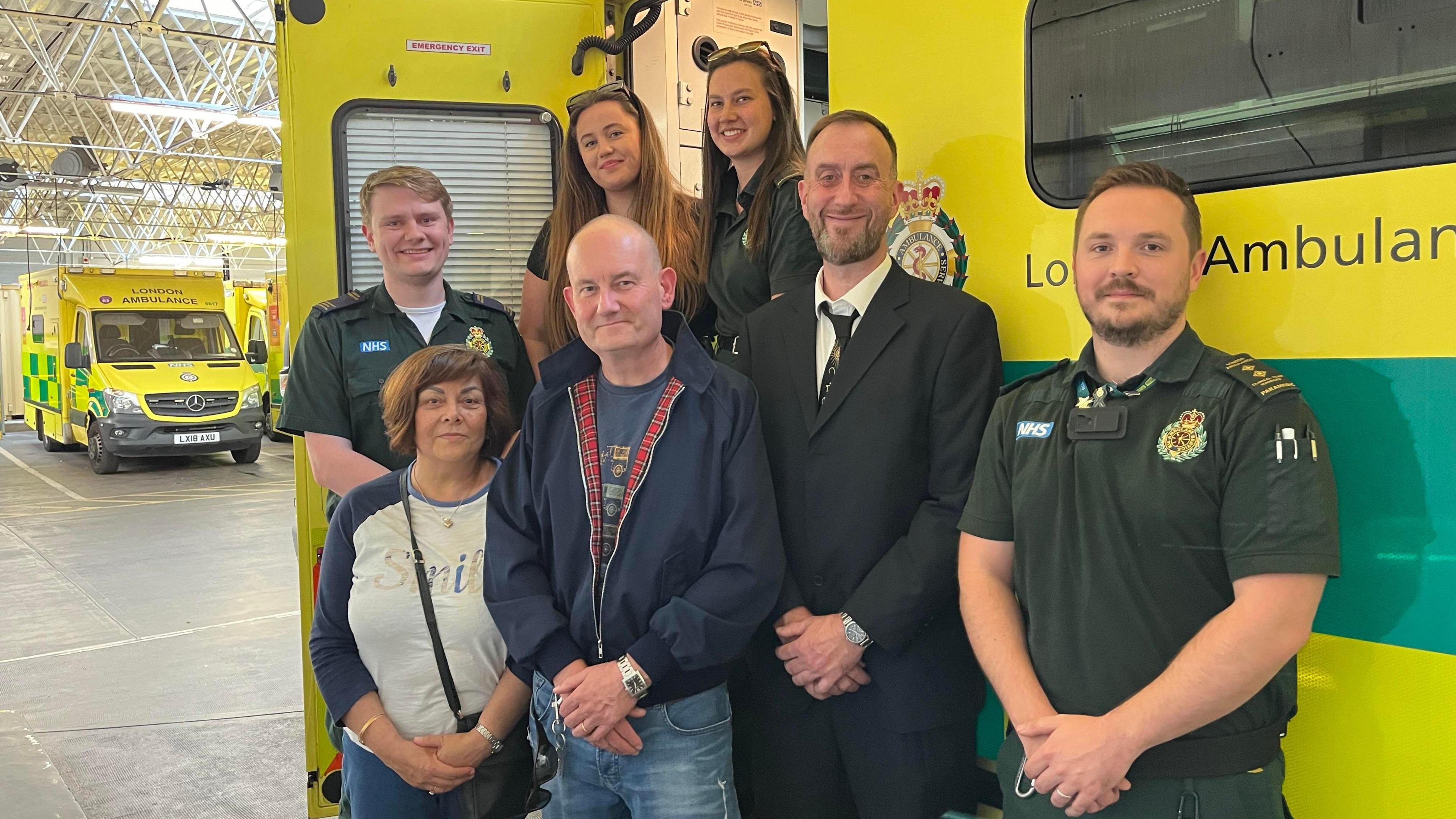
Front row: Paula and Paul White, Paul Hughes and Lewis Hawkins. Back row: John Beer, Millie Hurst and Laura Smith
Recent analysis by the London Ambulance Service has revealed that dozens of neighbourhoods are "defibrillator deserts" – where there is little or no access to a life-saving device.
The data has revealed large discrepancies between communities in outcomes for cardiac arrest and the availability of life-saving devices. Households in more deprived parts of London are more likely to be in an area in greater need of extra defibrillators.
“Defibrillators and chest compression do work and he is living proof of it," Mrs White told BBC London. "If you perform CPR and use a defibrillator in time, and do it correctly, people can still be here.
“I cannot thank the ambulance crews enough. They persevered, shocked him eight times and now I have my husband back.”
After two weeks in St George’s intensive care unit, Mr White was transferred to the Royal Brompton Hospital in Chelsea where surgeons replaced his heart valves and inserted an implantable cardioverter-defibrillator (ICD) into his heart to keep it at a normal rhythm.
Listen to the best of BBC Radio London on Sounds and follow BBC London on Facebook, external, X, external and Instagram, external. Send your story ideas to hello.bbclondon@bbc.co.uk, external
More on the London Ambulance
- Published4 April 2023
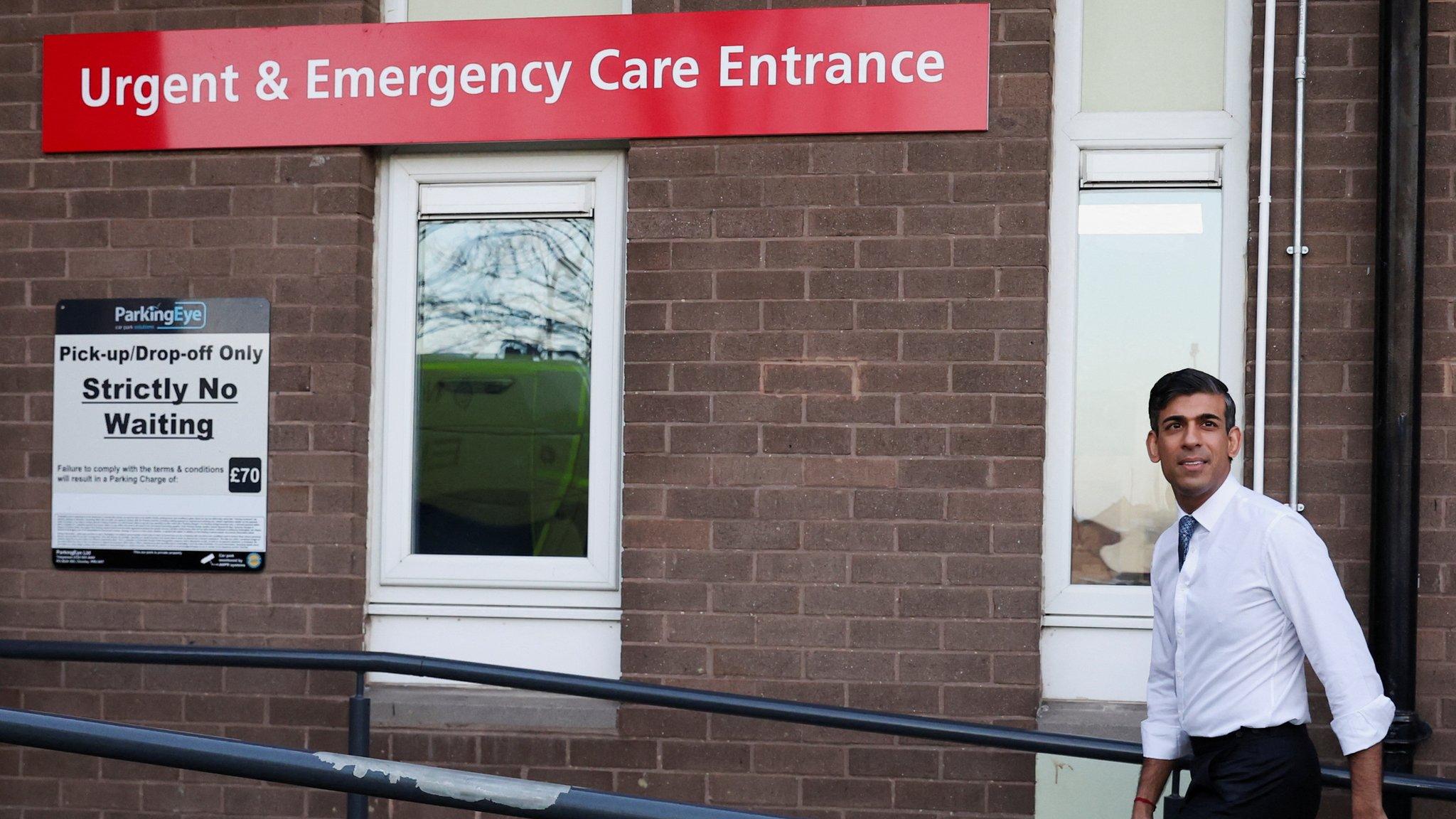
- Published27 March 2023
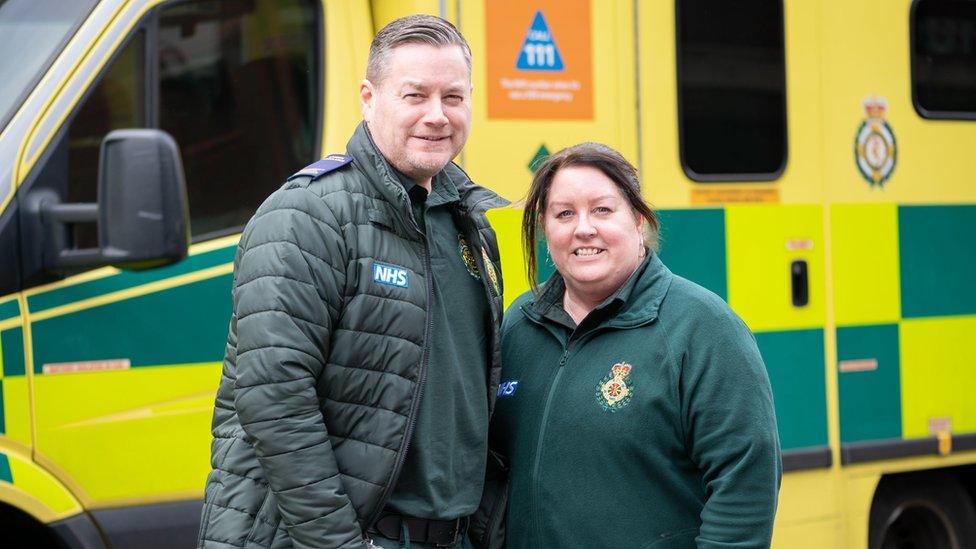
- Published13 February 2023
